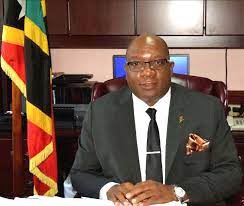St Kitts and Nevis will receive 2 field hospitals till November 2021 as a help to the health sector. These 2 field hospitals would be helping the nation to tackle the COVID-19 situation in future.
During the press briefing at the National Emergency Management Agency (NEMA), Conference Room on September 28 PM, Harris said, “We have received a commitment that we will receive two field hospitals. The plan is one will come to St. Kitts, and the other will be made available to the sister island of Nevis. We will receive one in October, and the second should follow sometime after that, possibly by November,”
PM Harris said that out of the 2 field hospitals, one would be installed in St Kitts. He further added that the exact location would be decided after discussing with the health experts as well as health planners.
According to the statement by PM Harris, the one field hospital has a capacity of 40 beds. One field hospital will be based in St Kitts, and the other will be based in Nevis. The facilities will supplement the bed capacity at the COVID-19 ward at the Joseph N. France General Hospital in St. Kitts and the COVID-19 Unit at the Alexandra Hospital in Nevis.
The field hospitals were taken through the Humanitarian Assistance Programme of the United States Southern Command (USSOUTHCOM). According to the website southcom.mil, the field hospitals are equipped with generators and air conditioning equipment.
The main objectives of the government of St Kitts and Nevis:
1. To have 80 per cent of our population inoculated with at least their first dose by the end of November.
2. To achieve 70 per cent of the target adult population being fully vaccinated.
3. To have over 80 per cent of our students between the ages of 12-17 years vaccinated by December 31, 2021. With such high vaccination coverage, we will be able to prevent future disruptions in our schools and country.
4. Conduct more focused contact tracing such that the results can be obtained in a more timely manner and the laboratory system does not become overwhelmed.
5. Reduce the quarantine period for fully vaccinated in-bound passengers.
